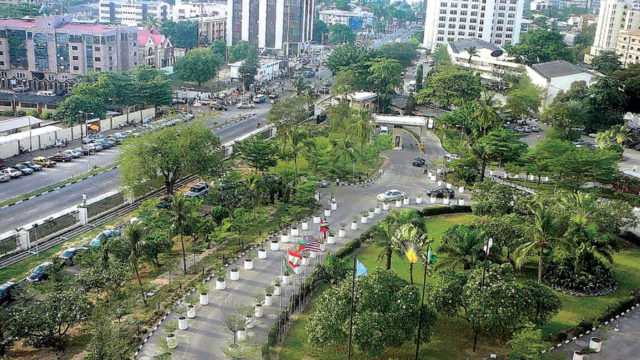This morning, the world over, the global community pauses once again to take stock of the state of living environments as it marks “World Habitat Day 2020”, amidst growing concern over the plight of some 200 million people in sub-Saharan Africa living in slums.
Closer home in Abuja and Lagos, housing experts are meeting to examine the theme, Housing For All: A better Urban Future, and forge alliance on ways to curtail myriads of challenges bedeviling the sector. The challenges have been numerous, ranging from scarcity of land to lack of mortgages.
The housing industry despite its policies over the years could not meet the yearnings of Nigerians seeking roof over their heads. The intervention of federal and state governments in different fronts was like a drop in the ocean and creating gaps that have reached about 17 million.
Essentially, the World Habitat Day was established in 1985 by the United Nations General Assembly through Resolution 40/202 and was first celebrated in 1986. Each year, World Habitat Day takes a new theme to bring attention to UN-Habitat’s mandate to promote sustainable development policies.
Every October, UN-Habitat and partners organise a month of activities, events and discussions on urban sustainability. This year, Urban October activities will begin with World Habitat Day, which takes place on the first Monday of October.
Speaking on the theme, the first vice president, Nigerian Institute of Town Planners (NITP), Mr. Olutoyin Ayinde said, it is not new to the world. “About 40 years ago, this was the slogan, and it was targeted at the Year 2000. Twenty years after that target ought to have been met, statistics suggest that we are in a deficit of more than 17 million housing units in Nigeria and we’re hardly making efforts to bridge that gap.
“While the theme is music to the ear and is a laudable goal to pursue, we need to have a deliberate course of actions and milestones that would move us nearer the target.”
Ayinde said that nothing is unachievable. “Nigeria has a housing policy, which is not being implemented as recommended, and a National Urban Policy, which is also far from being pursued – these are two documents that can deliver the focus of the theme for this year’s celebration.”
He said: “We need to revisit those documents and seek to fulfill their various recommendations. That way, we will set ourselves up for appreciable progress.
A senior lecturer in the Department of Building, University of Lagos, Prof. Godwin Idoro said: “When one considers the existing scarcity of finance for housing, scarcity and high cost of land for housing in the urban centers, high cost of building materials, per capital income, existing government policies and support for housing, one will be tempted to say, housing for all is not achievable.
“However, when there is a review of government policies, support and commitment to low-cost houses, development of rural areas, development of local building materials, redirection of government interventions, when land for housing development is available and affordable to low-income earners, then housing for all will be achievable.”
According to Idoro, government (federal and state) still holds a wrong view that the provision of housing is not its responsibility but that of the private sector. “For as long as government holds this view, housing for all will be an illusion,” he added.
Idoro suggested, government’s involvement in provision of land for housing development, restoration of site and services schemes for housing development by governments, restoration of housing loans by all employers, availability of low interest or interest free mortgage, and reduction in the interest rates charged by Federal Mortgage Bank.
He further recommended government support and incentives for the development and mass production of local building materials, setting up separate agency for the control of standards of building materials, government involvement in the training of skilled artisans, reduction in the fees charged by government agencies on housing development, and employers’ involvement in the provision of houses for their employees as well as good road network and efficient transportation services linking urban areas with surrounding towns or villages.
Meanwhile, the UN-Habitat Executive Director, Ms Maimunah Mohd Sharif, in her speech said, this year’s celebration offers an important opportunity to reflect on the effect of the COVID-19 crisis, and also how to make the future of human settlements more resilient.
According to her, inclusive, affordable, and adequate housing is central to transforming cities and communities and making them resilient, and to the achievement of Sustainable Development Goal 11 and all the SDGs.
“Housing is now widely recognised as a frontline defence against COVID-19, with residents across the world being told to stay at home and wash their hands. But these simple measures are impossible for the 1.8 billion people living in inadequate housing conditions, informal settlements, overcrowded homes, homelessness, and unstable housing conditions.”
For her, ‘Housing for All’ is more than just a roof. “Adequate housing is central to providing shelter against safety and health risks. It is an essential condition of living in dignity, and the basis for belonging and wellbeing, and a key for access to public spaces, job opportunities, hospitals, schools, and food.
“We must recognise that providing adequate housing is a shared responsibility, which depends on national and local governments, civil society, businesses, and local communities working together,” Sharif added.




